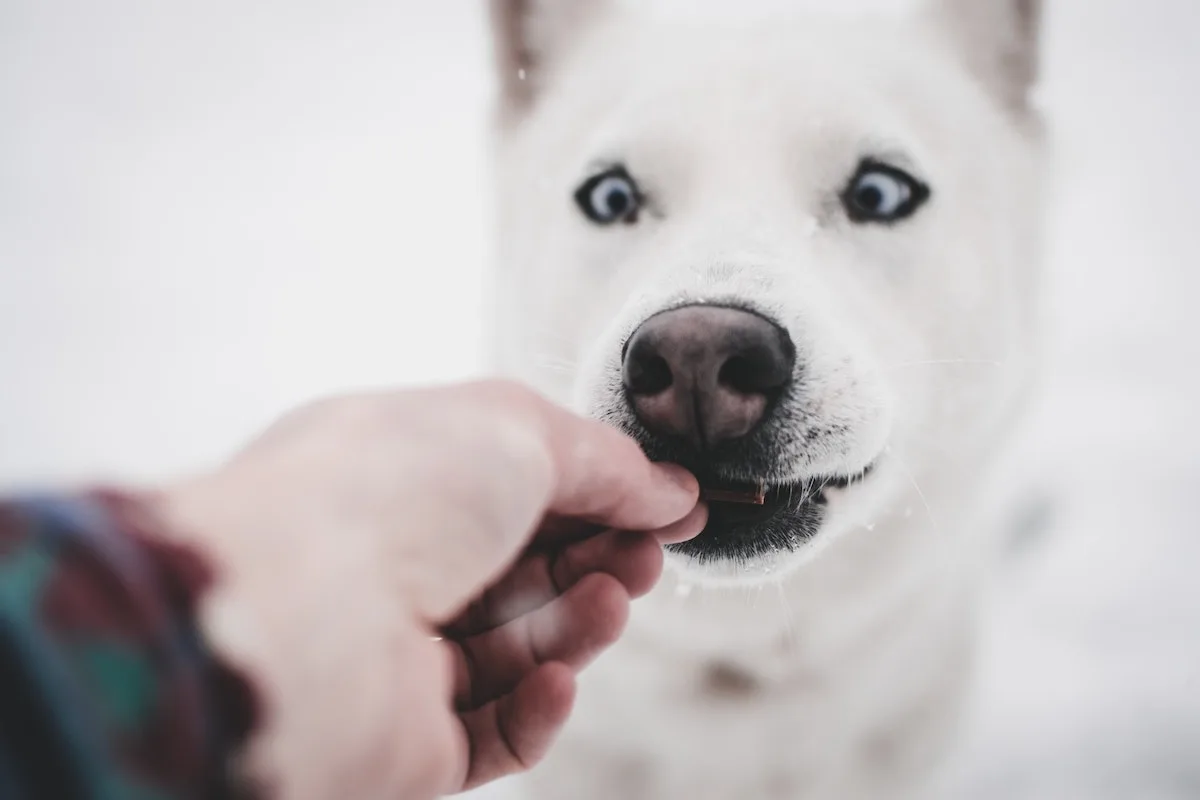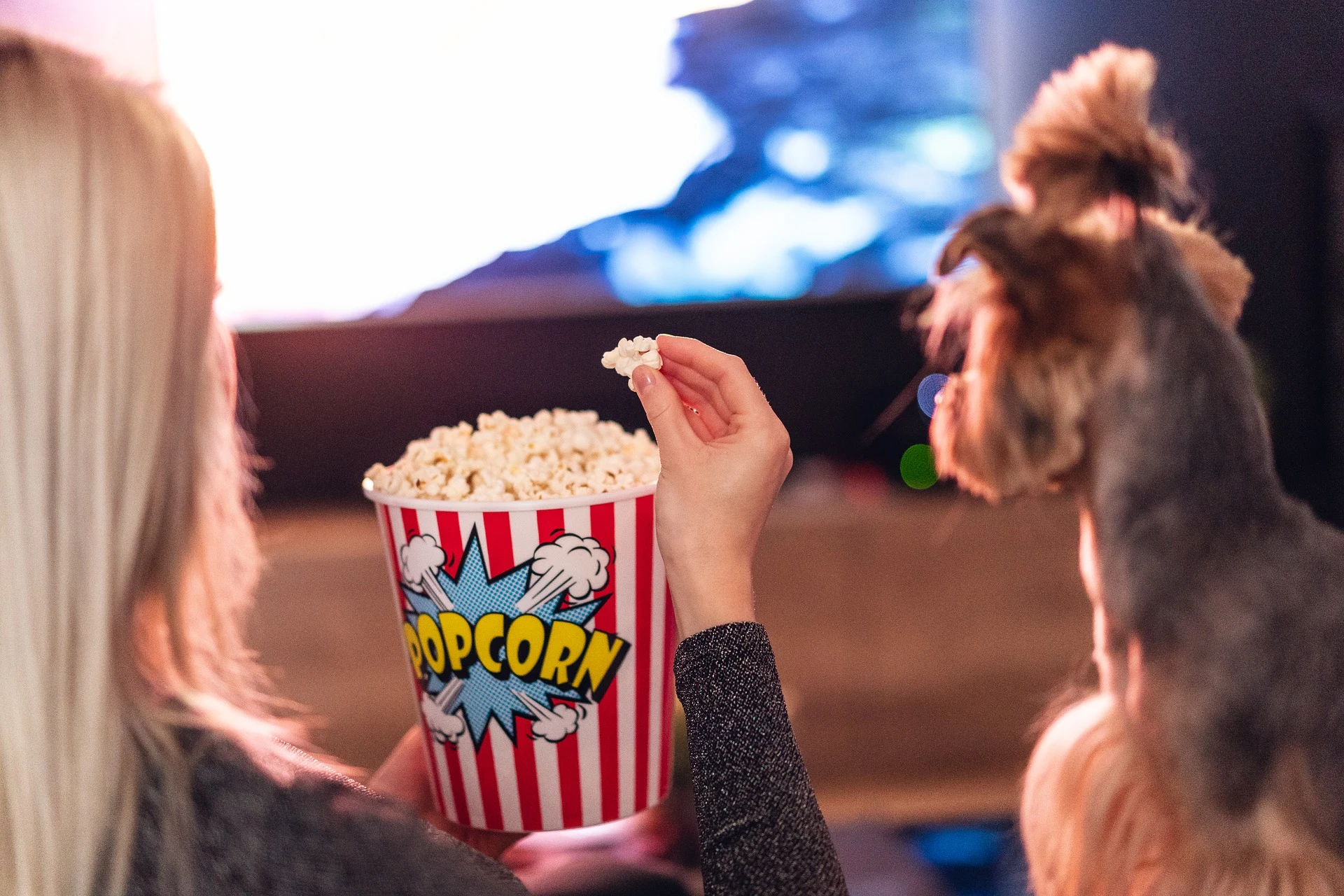If you have a dog in your household, have cared for a friend’s puppy, or have spent any time in the presence of a dog, you know that human food is like the promised land for our canine companions!
But is it okay to feed all types of human foods to your furry pal? What types of people food are safe for your dog to eat?
Carrots and other vegetables are safe for dogs to consume. What about nuts or fruits?
In this post, we’ll discuss some common misconceptions regarding people’s foods that dogs can and can’t eat.
What Human Foods Can Dogs Eat?
Food is metabolized differently in dogs and humans.
As a result, several harmless foods to humans may be poisonous and perhaps fatal to dogs.
On the other hand, many human foods are entirely acceptable and even healthy for dogs to consume as a special treat.
Although many human foods are healthy for dogs, they should be consumed in moderation.
Dogs can eat the following human foods:
Corn
Despite its terrible reputation as a filler in commercially prepared dog diets, corn is beneficial to your dog. This people food is high in antioxidants, protein, linoleic acid, vitamins, and fiber, which are helpful in digestion.
Limit the amount of corn you feed your dog, as you would any other carbohydrate, and avoid feeding the cobs.
Rice
This bland grain is suitable for your dog to eat. It’s frequently substituted for wheat in the treatment of upset stomachs and the treatment of dogs with wheat allergies.
Oats and Oatmeal
Oats are acceptable to feed your dog, especially if it suffers from wheat allergies.
Popcorn
So, can you give dogs popcorn? Fully popped, unseasoned popcorn is safe for dogs in modest amounts on its own. Popcorn, as long as it isn’t salted or buttered, is acceptable for them.
Popcorn contains thiamine and riboflavin, which help to maintain your dog’s eyesight. Avoid offering her any unpopped kernels that may cause her to choke.
Blueberries
Blueberries are beneficial to your dog’s health, making them an ideal bite-sized training reward.
Blueberries are high in antioxidants, fiber, minerals, vitamins, fiber, minerals, and vitamins. You can give them to your dog without feeling bad about it.
Pineapples
If you want to offer pineapple to your dog, it’s a safe and tasty source of fiber, minerals, and vitamins.
Strawberries
Strawberries can sometimes be damaged or don’t look as appetizing as they should. Low in calories and high in antioxidants and fiber, they are ideal for giving to your dog.
Salmon
Salmon is a fantastic method to add omega-3 fatty acids to your dog’s diet as long as it’s cooked.
Bananas
If you’re feeling very charitable, say if you’re leaving home for five hours and don’t want to leave your dog alone, you may consider slathering some peanut butter on a few banana slices and keeping them in the bowl.
Cheese
Cheese is healthy for your dog to eat, but only in moderation. Lactose sensitivity is common in dogs, so too much cheese might irritate their stomach.
Eggs
Cooked eggs, according to some, can help with nausea. In addition, eggs are high in vitamins, minerals, and protein. Feeding raw meat is not recommended.
Oranges
Oranges are an excellent treat for your dog since they are low in calories and abundant in nutrients. As always, serve in moderation because oranges are acidic and have been known to upset the stomachs of dogs who consume too much of them.
Carrots
You’ve succeeded if you can convince your dog to eat a carrot. They’re high in fiber, minerals, and vitamins but low in calories. They may be offered cooked or raw, so if your dog loves vegetables, it’ll be in for a treat.
General Human Food Safety Advice for Dogs
Because pets are persistent, you may need to take precautions to keep your pet from eating anything it shouldn’t. Create many safe options tailored to your pet’s personality and requirements.
- Access is restricted. Install a safety gate or other barrier in the kitchen, dining room, and pantry to keep your pet out of the areas where you prepare, eat, and store food.
- Remove all human food as soon as possible. After your meal, toss or store human food as quickly as feasible. This prevents your pet from eating anything it shouldn’t.
- Teach your pet to ignore food. Your pet can learn to “leave it” and not eat off an unattended table, the floor, or your favorite walking track.
- Pets should be kept safe during dinner parties and holiday gatherings. Prevent pets from entering the den, basement, backyard, or another area where food is served to visitors. You can keep them on a leash, in their cage, or in an empty room.
- Pre-meal playtime should be scheduled. Instead of clamoring for table food, a tired pet can take a nap.
- Treats are a good option. To gratify your pet and eliminate excessive grazing, use praise and treats.
- Scavenging activity should be addressed. If your dog eats anything it comes across on walks or at the dog park, learn to detect when it smells food and divert it.
You might also take your pet for a stroll when it’s finished eating or approximately 30 minutes later. Alternatively, a muzzle might be used to prevent scavenging.
Human Foods That Dogs Should Not Be Fed

Photo: Unsplash (Marek Szturc @marxgall)
Onions, Garlic, and Chives
The onion family is particularly toxic to dogs, whether dried, raw, or cooked, and can cause gastrointestinal distress and the loss of red blood cells. Symptoms of illness may not constantly develop right away and might take up to a few days.
Chocolate
Chocolate is another toxic food for dogs, no matter how tempting it is for them. Chocolate includes theobromine, a stimulant poisonous to dogs, and can induce renal failure. Dark chocolate has the greatest level of theobromine.
Macadamia Nuts
A toxin found in macadamia nuts can cause weakness, swelling limbs, and panting in your dog’s muscles and neurological system.
Avocado
Avocados are also toxic to dogs. Avocado trees contain a chemical called persin, which can induce vomiting and diarrhea in dogs. Persin is found in avocado plants’ leaves, fruit, and seed.
Artificial Sweetener (Xylitol)
Our craving for sweet snacks, chewing gum, and beverages, as well as low-fat, diet, and sugar-free items (including peanut butter) are sometimes laced with an artificial sweetener called Xylitol, which induces an insulin release in our bodies.
If your dog eats one of these sweetened meals, it may develop hypoglycemia, leading to liver failure and blood clotting problems.
Alcohol
Even in modest dosages, alcohol has a significant effect on dogs. The drink induces drunkenness in humans, but it may also cause nausea, diarrhea, and even harm to the central nervous system.
Cooked Bones
It’s fine to give your dog a raw, uncooked bone to gnaw on, but cooked bones should be avoided. These can easily splinter, causing constipation or, in the worst-case scenario, intestinal perforation, which can be deadly.
Grapes and Raisins
Raisins may be found in various meals, including cakes, cookies, and cereals, so it’s not only the fruit version that has to be avoided. Although the toxin’s primary constituent is unclear, grapes and raisins can cause severe liver damage and renal failure.
Keep Your Dog on a Healthy Diet
The decision to raise a dog is a huge one. You’ve accepted another living creature into your home and family, just as you would a kid. We probably don’t need to remind you to look after your kids, but your dog will have quite different nutritional requirements than your child.
In light of your dog’s size, age, and any unique health concerns, ask your veterinarian what food would be best for him. You’ll know what your dog can eat and be less likely to have any food-related problems.
Bottom Line
Your dog can consume many human foods as long as you know which ones they can and can’t eat. To keep your dogs healthy and their taste buds satisfied, make sure your entire family understands which people’s food they can consume.
Hopefully, this list has provided some insight into various foods that dogs should avoid. Some are just unfit to eat, while others are downright poisonous!
You should not deliberately offer anything on this list to your dog, but if you are aware that your dog has eaten anything they shouldn’t have, please take them to a vet as soon as possible. Medication can often cause vomiting, which helps to decrease the absorption of any poisons, resulting in a far better outcome.

